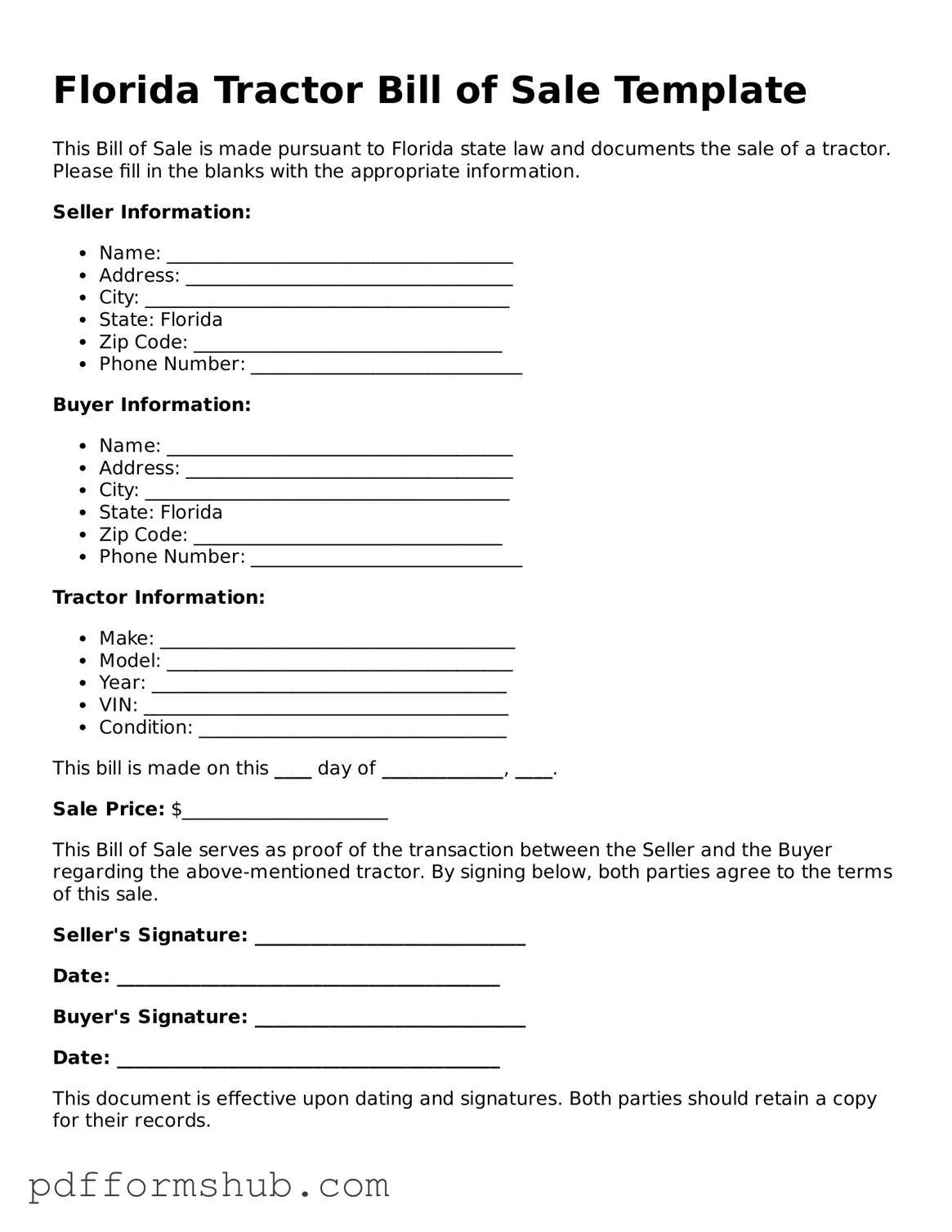Attorney-Verified Tractor Bill of Sale Form for Florida State
The Florida Tractor Bill of Sale form is a legal document that records the sale and transfer of ownership of a tractor in the state of Florida. This form provides essential details about the transaction, including the buyer and seller information, tractor specifications, and sale price. Completing this form is crucial for ensuring a smooth transfer of ownership and protecting both parties involved.
To get started, fill out the form by clicking the button below.
Customize Form

Attorney-Verified Tractor Bill of Sale Form for Florida State
Customize Form

Customize Form
or
Free PDF Form
Short deadline? Complete this form now
Complete Tractor Bill of Sale online without printing hassles.